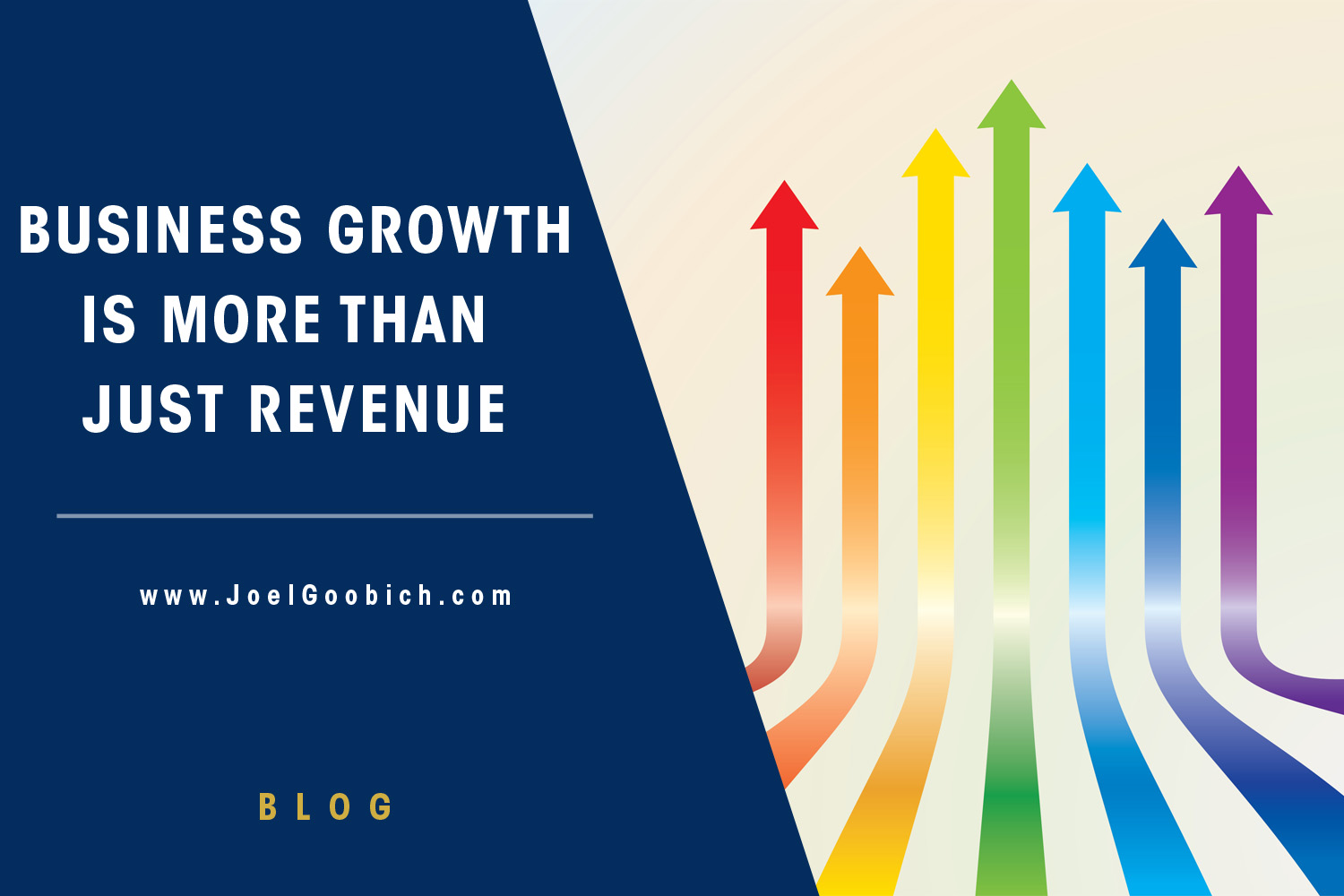Business Growth is more than Revenue
**5 Minute Read**
An interesting dynamic is playing out in our business landscape. It seems that the general consensus that startups have to sprint at breakneck speed toward business growth without generating revenue or profits has hit a few bumps of late. Those dirty little words “profit” and “revenue” are making a comeback, especially for overhyped unicorn startups who have recently gone public or looking to do so in the near term. Maybe growth is not the magic elixir of business success after all.
I hear and read the word growth used over and over and over again. Almost to the point that it’s become a word without meaning. Our politicians bandy it about as if it were something you could mandate simply through an act of Congress. If only it were that simple.
What is Business Growth?
What does business growth mean? Does it represent the same thing for everyone? Of course not.
Does it mean the same thing in a business as it does in macroeconomic terms? Again the answer is No.
Is growth always good? No it isn’t if it can’t be controlled. In business there are situations where too much growth has some negative and unintended consequences. Growth doesn’t happen in a vacuum. It occurs because resources have been leveraged – through development or acquisition and then unleashed to create added value.
Defining Growth
Let’s define what growth is. According to the dictionary growth is defined as:
A. The act or process of developing or progressing
B. An increase as in size, number, value or strength
Growth is a process.
Business Growth is rarely a singular event. Nor is it an isolated incident. There is a continuum of events and inputs that lead to the process we call growth. In business it is an essential element of a strong business core. Developing, refining and implementing a reproducible and measurable system that leads to attaining objectives and positive results in the future. In short,
Growth needs to be a constant throughout the lifespan of a business.
Measuring Business Growth
And how is growth measured? Often we confuse growth with its measurement. We talk about a bigger bottom line (profits), a larger top line (revenue), and greater market share. These are all measurements of growth, the metrics by which we can compare the growth.
Because growth is a continuum it needs a comparison to a previous state to have meaning. And more importantly we should concentrate on creating a robust, reproducible and measurable process by which we can create added value.
This is why it is always important to make sure that the process of growth leads to a stronger business core, not just a one-time event. An ongoing business needs a create a sustainable process that builds the bridge to its future. That’s where the first definition of growth is critical. By growing and improving its core systems a business can leverage its assets, resources and opportunities in a proactive and intentional fashion, thereby reaching HyperLeverage.
How to Fuel Business Growth
And what is the gasoline by which we fuel growth. What are the tools that we can use to build maintain and enhance our growth process. To name a few of the obvious
- Capital/access to capital
- Value Added products/services
- Distribution systems
- Supply chain systems
- Operational efficiencies
- Human capital
Take Aways
- Business Growth is a continuous process that last the entire lifespan of a business
- Growth is not just greater profits or revenue. It also manifests itself in better operations
- Having a strong business core allows businesses to grow through HyperLeverage of assets, resources and opportunities.







